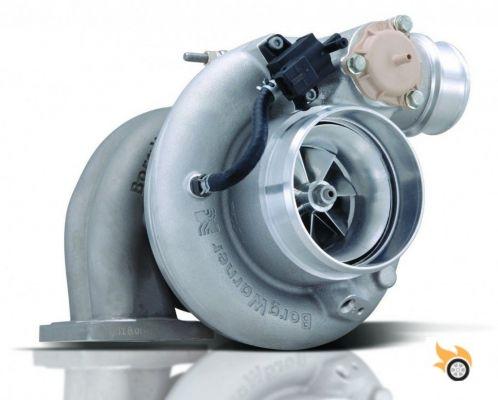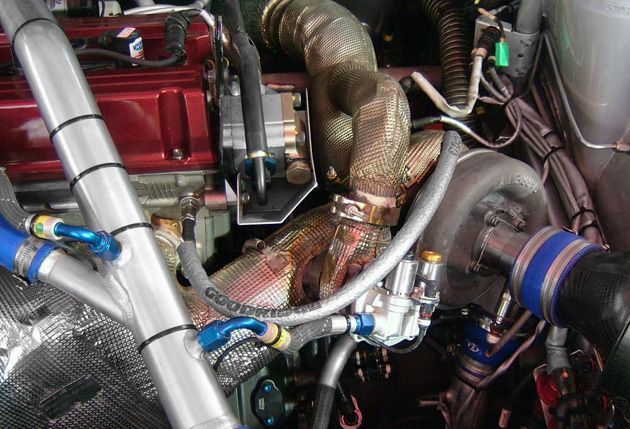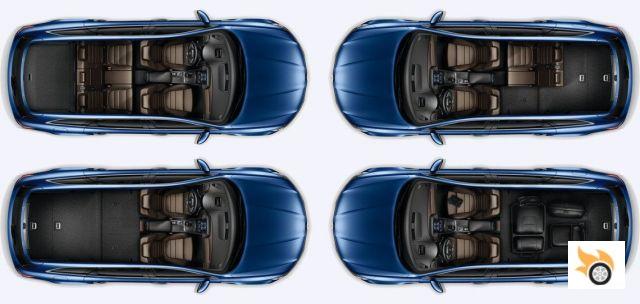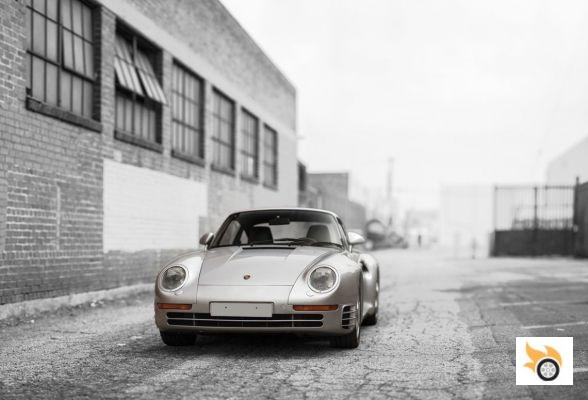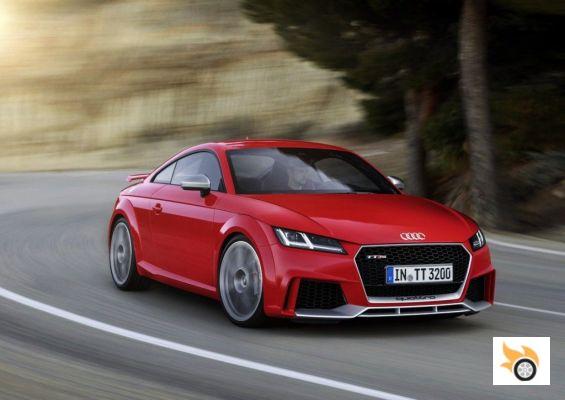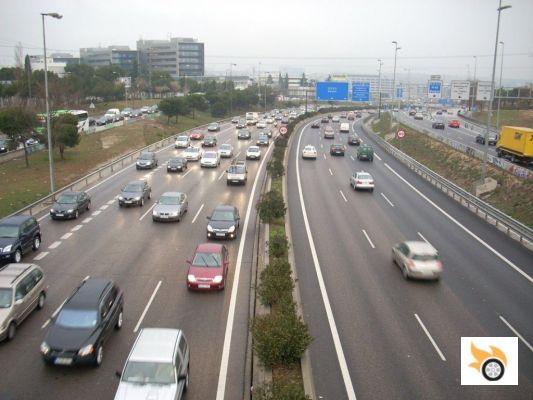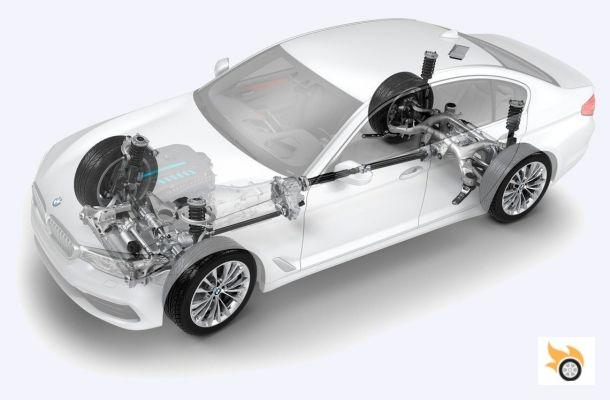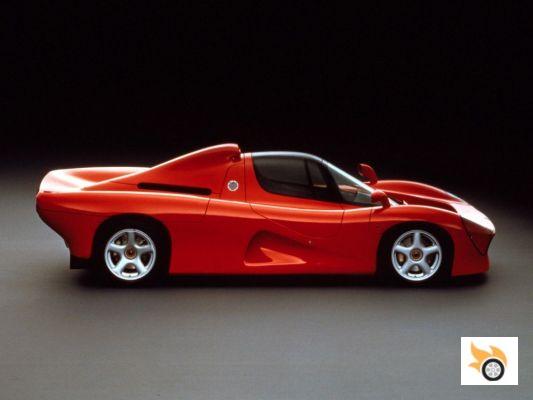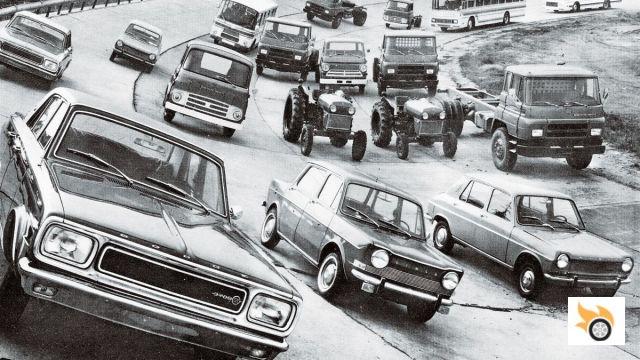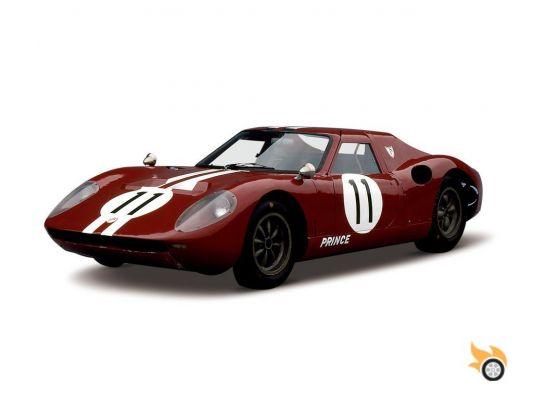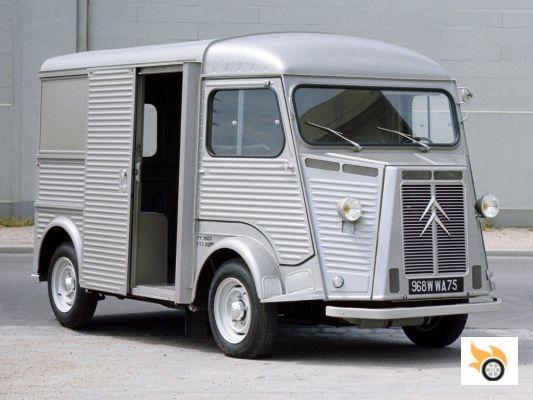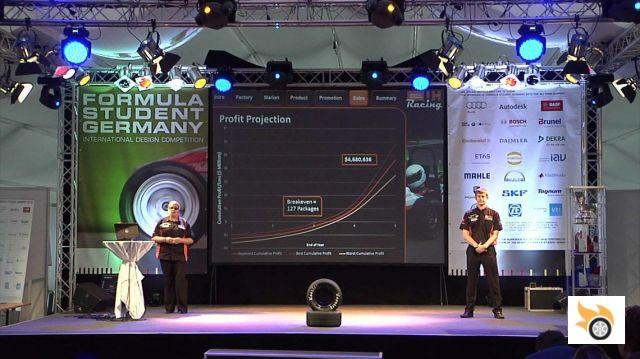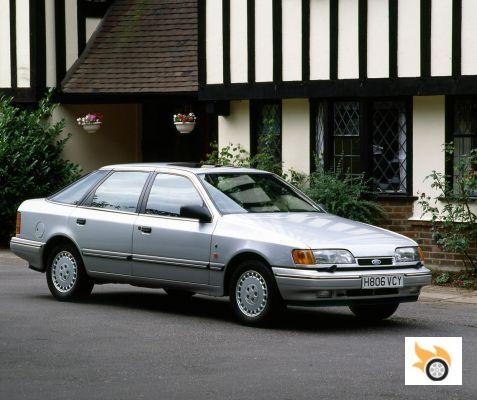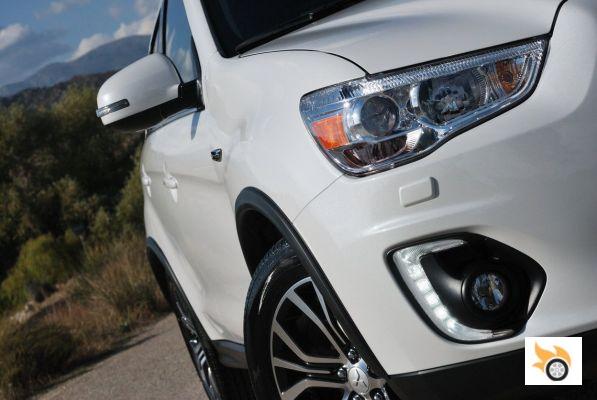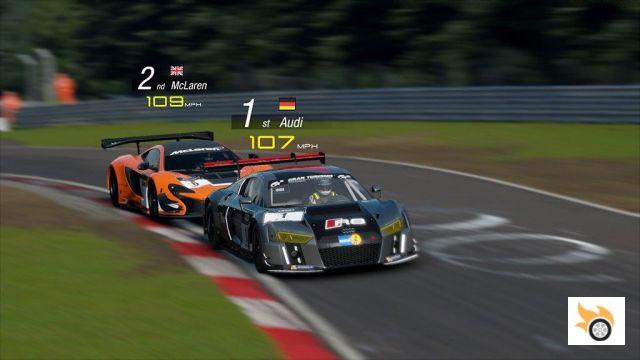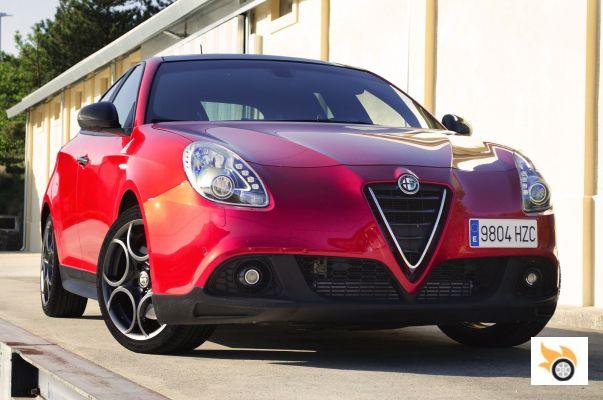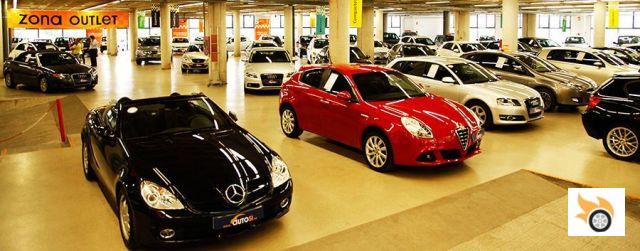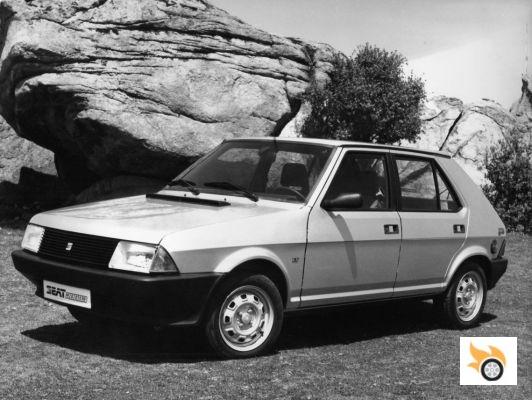Using current components and fuel with today's qualities, older models pollute less than when they were new - assuming the mechanics are OK - and have a slightly higher level of safety. For example, the diesel has much less sulphur, the brake pads fit perfectly but have better compounds, the tyres are far superior to the OE ones when they hit the road, and so on. What we can't get or pretend is that they pollute less than a new model, or that they are equally safe. That's not realistic.
There are people who REALLY think they have an environmentally friendly, super safe old car. I'd like to know what they're smoking?
A reader reminded me that a study came out four years ago sponsored by a well known rental company and a well known tire brand. The study questioned drivers of cars over 12 years old and concluded that they were unaware of the road safety risks they were exposed to. For example, we've all heard the bullshit that modern cars are made of plastic and older cars are harder, and that's a lie as big as the Eiffel Tower. Yes, there are plastic parts, designed not to burst when you run over, but what is metal is much more rigid and resistant, another thing is that it bends where it should do to reduce the consequences of a slap.
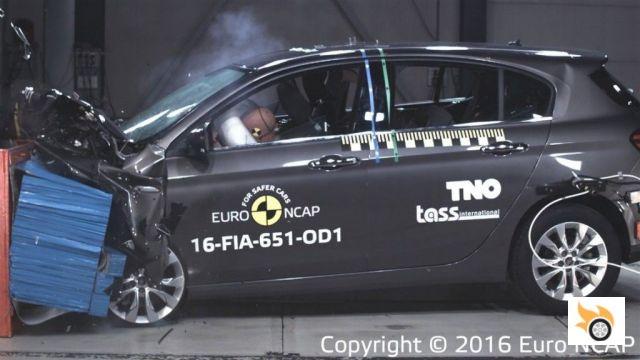
They denounced the lack of popular perception of safety, as respondents spoke well of 16-year-old cars that "braked well" and "held in curves" while answering that the tires were mixed, worn or old. These are as consistent responses as those of a kidnap victim with Stockholm syndrome: "he loves me, that's why he keeps me off the road". So it was considered as a conclusion of the study that the sale of models over 15 years old between individuals should be prevented, and those over 30 should be withdrawn from circulation, unless they are classics for preservation.
In other words, cars over 30 years old that are not in good condition will have to be withdrawn from circulation.
More than one will get a shock, but I see quite a lot of reason in these approaches, even if it is on the surface. For example, let's think of a Renault Siete, like our friends Cecilio and Antonio's, maintained to perfection, well painted and cared for... That's a classic. Now let's think of a car exactly the same that is in a lost rural village, with tyres from when we were crawling, brakes that whistle on a high note and a couple of scratches on the glass. Its owner will say that it's only used to go to the next village or to pick potatoes, and that he only goes to the capital a couple of times a month. That's not a classic, that's a potential scrap heap.
I'll give a less extreme example. A few days ago there was an interesting article in the official Mercedes blog in Germany, telling the story of a 55 year old engineer of the company, Michal Nickl, who has been driving his Mercedes 200 D (W154) to and from work for a million kilometres and a quarter of a century. Between fuel and maintenance - which he has audited - he has already spent more than 112,000 euros (about 4,500 per year). The car comes out in the photos without disguising scratches or the poison of several days. It wouldn't win any beauty contests, but the owner has spent whatever it has taken to keep it roadworthy. It's a car for everyday use.
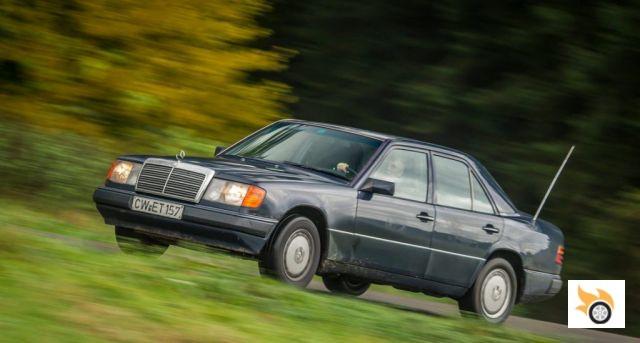
I can also tell you about a deceased man who had a Mercedes 300, of the same range and similar age, full of dirt (it hadn't been vacuumed for years), maintained at the minimum by the mechanic of the village, and better not to ask about the state of the mechanics, brakes, shock absorbers... To turn it into a classic we would almost have to send it to Germany for the classics department to pamper it, because I wouldn't know where to start. That a car like this passes the MOT is a separate topic.
There are certainly cars worth keeping and preserving for future generations, especially the sporty, interesting or more luxurious versions. The bulk, the heap... if it has no sentimental value and can't be upgraded to a classic, it has a clear destiny: the scrapyard. Not all cars can be saved, it is environmentally irresponsible (among other things). And those that are not to be saved, are either kept or should be withdrawn from circulation for the good of all.
If we add into the equation very old drivers, with their faculties as impaired as the mechanics of their car, secondary road and the slightest inclement weather, according to the statistics of the DGT we are talking about an aspiring corpse and a car that will get off the crane in the scrapyard unrecognizable. I'm sorry if you don't like what I say, but that's the way it is. It has to be left to the right people to preserve motoring heritage, and there are other cars that are literally surplus to requirements on the roads, including those in Grandma and Grandpa's village.
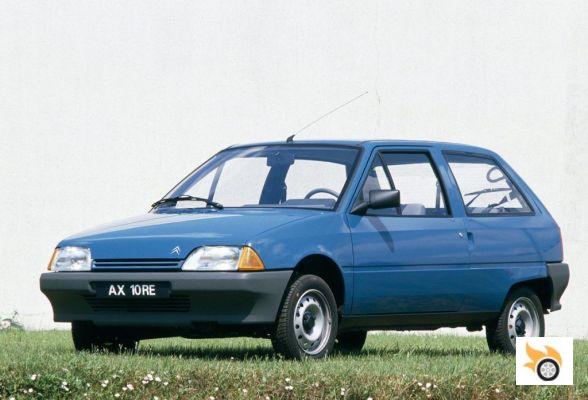
Is it barbaric to restrict the sale of models over 15 years old? As the authors of the study say, it does not penalize those who want to keep their cars, but it prevents them from falling into the hands of those who need a very cheap car and surely do not have the resources to maintain it properly. All cars start to develop problems over the years and kilometres, so it's inevitable... or the car can be maintained depending more on luck than anything else.
We can open another debate about the right to mobility of those who buy a car worth less than 1,000 euros, if they should be going on a moped (depressed sector where there are), public transport or living closer to work under the reviled figure of renting. But I don't want to open that box right now.
One of the measures that María Seguí's DGT wanted to promote was to increase control over cars and their maintenance history, bringing cars into the system of professional repairers and expelling the rest, including those who do their own maintenance. I'm sorry, but unless we're talking about professional mechanics, I consider changing oil and filters not proper maintenance, it's essential maintenance. A professional mechanic will notice a lot more things than any amateur. From that point of view, it was one of the things that the previous DGT was doing better.
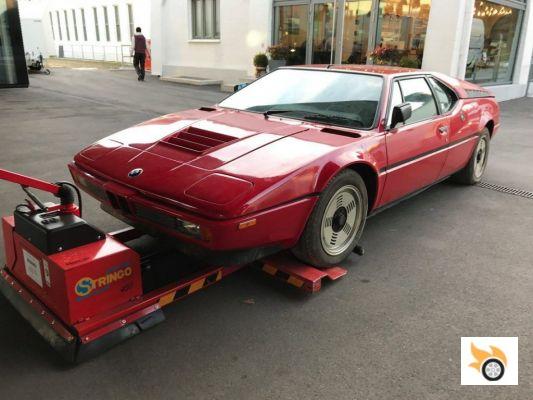
That doesn't mean that I don't disagree with the way things are done, you don't have to chase the owner of an old car (and I'm not just saying that because it's an old car), you just have to chase the person who has a car in circulation that shouldn't be in circulation. The world of the ITV needs a thorough audit to get out of the system all the stations that give approvals to those who should fail, either by patronage, cronyism, lack of zeal in their work, bribes or any other reason. We don't exactly have a problem of lack of ITV, it can be cleaned up.
If what really concerns the administration is road safety, it should make things easier for those who contribute, and make things difficult for those who make it worse by their actions or omissions. We should not go to the extreme of forcing owners of old cars to have them perfect, with historical license plates (H BBx...), and in a state of competition. By the way, those who have cars with such high consideration, are the ones who take the best care of them.
On the other hand, we have people with very limited economic resources, who put their lives and the lives of others at risk every day with cheap junk. We must analyze the problem in depth and see how we can reconcile the right to mobility with the right to health of others (including pollution and accidents). Perhaps we need to start by teaching people how to assess more correctly what is a car in good condition and what is a mobile grave.
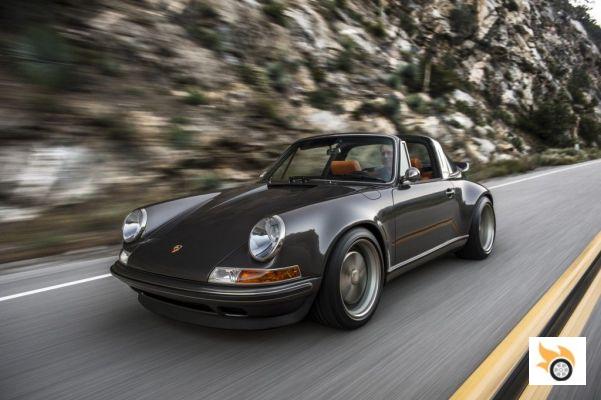
I think it's great that there are companies that have a legitimate interest in renting more cars or increasing tyre sales, but it should not be the result of consumerism, but of a more rational choice. People should be aware of the risk they are taking, be informed, and make the right decision as a result. That would be fair to our elders.




